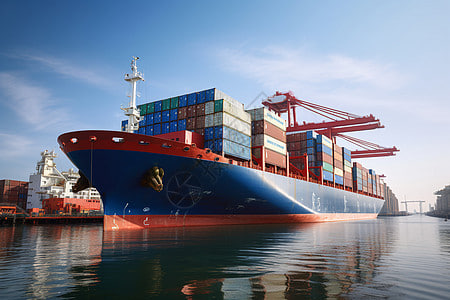Unlocking Global Finance: China's Optimized Cross-Border Capital Pool for Multinational Corporations
Meta Description: Dive deep into China's revolutionary policy changes optimizing cross-border capital pools for multinational corporations (MNCs) in 10 key provinces, impacting financing costs, streamlining processes, and boosting cross-border payments. Learn about the implications for MNCs operating in China. #MNCs #CrossBorderPayments #ChinaFinance #CapitalPool #ForeignExchange
Imagine this: you're a CFO of a multinational corporation navigating the complex landscape of international finance. Suddenly, a game-changer appears – a streamlined, more efficient system in one of the world's largest and fastest-growing economies. That's exactly what China's latest policy shift on cross-border capital pools offers. This isn't just a minor tweak; it's a seismic shift designed to make doing business in China smoother, more cost-effective, and frankly, a whole lot less headache-inducing. Forget navigating endless paperwork and bureaucratic hurdles; instead, picture a streamlined process where funds flow effortlessly across borders, allowing you to focus on what truly matters: growing your business. This isn't just about numbers on a spreadsheet; it's about empowering companies to reach their full potential in the dynamic Chinese market. We'll unpack this significant development, analyzing its implications for MNCs and exploring the transformative potential it holds for global commerce. Prepare to be amazed at how China is actively shaping the future of international finance, one optimized capital pool at a time. This insightful analysis will provide a clear understanding of the changes, outlining the benefits, and exploring the potential impact on businesses both large and small operating within the Chinese economy. Get ready to gain a competitive edge in the global arena by mastering the intricacies of this pivotal policy shift. This detailed guide will equip you with the knowledge you need to thrive in the ever-evolving world of international business. Let's dive in!
China's Optimized Cross-Border Capital Pool for MNCs: A Detailed Analysis
This new policy, jointly announced by the People’s Bank of China (PBOC) and the State Administration of Foreign Exchange (SAFE), significantly enhances the existing cross-border capital pool system for multinational corporations (MNCs) operating within China. Think of it as a major upgrade to the financial plumbing that connects a multinational's various entities across borders. This isn't just business as usual; it's a leap forward in facilitating smoother, more efficient cross-border transactions.
The impact? Well, let's just say it's huge. The changes directly address many pain points previously experienced by MNCs, making their operations within China exponentially more efficient and cost-effective.
Key Policy Improvements: A Streamlined Approach
The policy changes introduced by the PBOC and SAFE are multi-pronged, focusing on several crucial areas:
-
Currency Flexibility: Previously, companies faced restrictions on the inter-company borrowing of different currencies. Now, MNCs can freely borrow and lend between their Chinese subsidiaries in different currencies for current account cross-border payments. This increased flexibility significantly reduces financing costs and opens up a lot more strategic financial options. Imagine the possibilities!
-
Simplified Documentation: The bureaucratic burden associated with cross-border transactions has been drastically reduced. The simplified documentation and streamlined approval processes translate to less admin time and faster processing times – essentially less wasted time and resources that could be used for core business activities. Say goodbye to mountains of paperwork and hello to efficiency!
-
Improved Capital Allocation: Under the new guidelines, MNCs are granted greater autonomy in managing their external debt and overseas loans. This means they can now optimize their capital allocation strategies more effectively, based on their specific needs and macro-prudential considerations. This empowers MNCs to be more agile and responsive to market dynamics. It's about giving them the tools to truly thrive.
-
Centralized Payments: The new policy allows parent companies to handle payments on behalf of their foreign subsidiaries through a centralized domestic account. This centralized approach significantly improves efficiency and transparency in managing global cash flows. It’s like creating a financial command center for your global operations.
Ten Pilot Cities: A Strategic Rollout
The 10 pilot cities—Shanghai, Beijing, Jiangsu, Zhejiang, Guangdong, Hainan, Shaanxi, Ningbo, Qingdao, and Shenzhen—represent a strategic selection capturing a diverse geographical spread and economic strength. This targeted approach allows for a controlled rollout, enabling authorities to gather valuable data and refine the policy for wider implementation in the future. This phased approach minimizes risk and maximizes potential for success.
Impact on MNCs: A Competitive Advantage
The implications of this policy shift are substantial and far-reaching for MNCs. The improved efficiency, reduced costs, and greater flexibility will undoubtedly enhance their competitiveness within the Chinese market. Here's a breakdown:
-
Reduced Financing Costs: The ability to borrow and lend in different currencies internally lowers the overall cost of capital, freeing up funds for investment and expansion.
-
Streamlined Operations: Simplified processes and reduced paperwork lead to faster transaction times and reduced administrative overhead. This allows companies to focus on their core business activities instead of getting bogged down in paperwork.
-
Enhanced Risk Management: Greater control over capital allocation and external debt management improves the overall risk profile for MNCs operating in China. It’s about building a more resilient and adaptable business model.
-
Improved Cash Flow Management: Centralized payment processing improves cash flow visibility and efficiency, allowing for better forecasting and strategic decision-making. This translates to more informed financial strategies and potentially enhanced profitability.
Looking Ahead: A Catalyst for Growth
The PBOC and SAFE's commitment to continually optimizing policies for cross-border fund management signals a proactive approach to fostering a more attractive investment environment. This ongoing commitment translates into long-term stability and confidence for MNCs, encouraging further investment and economic growth within China.
Frequently Asked Questions (FAQs)
Here are some commonly asked questions about the optimized cross-border capital pool policy:
-
Q: Which types of MNCs will benefit the most from this policy?
A: MNCs with substantial operations and inter-company transactions within China will see the most significant benefits. This includes those with complex global supply chains and substantial cross-border payments.
-
Q: What are the potential challenges in implementing this policy?
A: While the policy aims for simplification, some initial challenges could include system integration, staff training, and potential unforeseen issues during the implementation phase. However, the authorities are committed to addressing these challenges proactively.
-
Q: Will this policy impact smaller MNCs differently?
A: Smaller MNCs will undoubtedly benefit from the streamlined procedures and reduced costs, though the magnitude of the impact may be smaller compared to larger companies with more complex financial structures.
-
Q: Is this policy only applicable to specific industries?
A: The policy is designed to apply to MNCs across various industries operating within China.
-
Q: How does this change compare to previous regulations?
A: This policy represents a significant liberalization compared to previous, stricter regulations, offering greater flexibility and efficiency for MNCs. It's a clear move towards a more open and market-oriented financial system in China.
-
Q: What is the timeline for the full implementation of the policy?
A: While the pilot program is already underway, the complete rollout and implementation timeline across all of China is not yet publicly available. However, the government's commitment to this policy suggests a strong push for wider adoption in the near future.
Conclusion: A New Era of Cross-Border Finance
China's new policy optimizing cross-border capital pools for MNCs signals a significant leap toward a more efficient and transparent financial system. This forward-thinking approach underscores China's commitment to attracting foreign investment and facilitating sustainable economic growth. The policy's benefits — reduced costs, streamlined processes, and enhanced flexibility — will undoubtedly strengthen China's allure as a global investment destination. For MNCs, it represents a significant opportunity to enhance their operations, reduce costs, and gain a competitive edge in the dynamic Chinese market. The future of cross-border finance in China looks bright, indeed!



